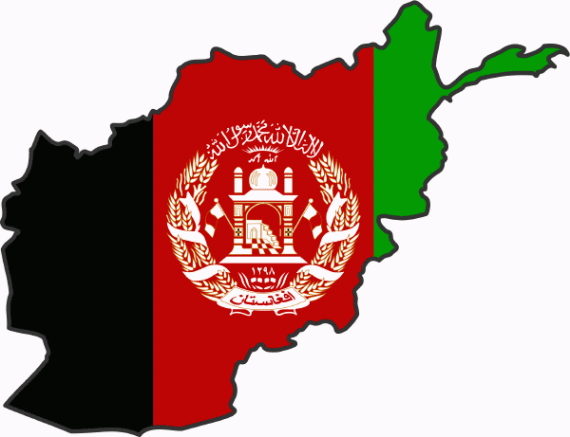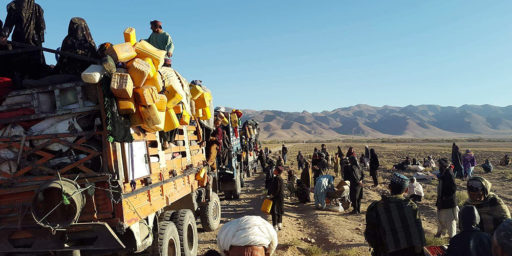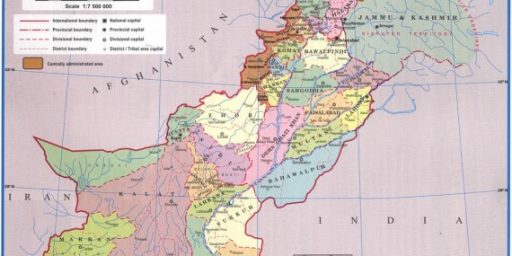WikiLeaks Documents A 21st Century Pentagon Papers ?
Will the Wikileaks document dump give even further impetus to the growing sentiment that the United States needs to leave Afghanistan ?
As James noted this morning, the news is dominated by the revelation that Wikileaks has made public some 91,000 classified documents detailing the good, the bad, and, especially, the ugly about the Afghanistan War:
A six-year archive of classified military documents made public on Sunday offers an unvarnished, ground-level picture of the war in Afghanistan that is in many respects more grim than the official portrayal.
The secret documents, released on the Internet by an organization called WikiLeaks, are a daily diary of an American-led force often starved for resources and attention as it struggled against an insurgency that grew larger, better coordinated and more deadly each year.
The New York Times, the British newspaper The Guardian and the German magazine Der Spiegel were given access to the voluminous records several weeks ago on the condition that they not report on the material before Sunday.
The documents — some 92,000 reports spanning parts of two administrations from January 2004 through December 2009 — illustrate in mosaic detail why, after the United States has spent almost $300 billion on the war in Afghanistan, the Taliban are stronger than at any time since 2001.
As the new American commander in Afghanistan, Gen. David H. Petraeus, tries to reverse the lagging war effort, the documents sketch a war hamstrung by an Afghan government, police force and army of questionable loyalty and competence, and by a Pakistani military that appears at best uncooperative and at worst to work from the shadows as an unspoken ally of the very insurgent forces the American-led coalition is trying to defeat.
The material comes to light as Congress and the public grow increasingly skeptical of the deepening involvement in Afghanistan and its chances for success as next year’s deadline to begin withdrawing troops looms.
The archive is a vivid reminder that the Afghan conflict until recently was a second-class war, with money, troops and attention lavished on Iraq while soldiers and Marines lamented that the Afghans they were training were not being paid.
The reports — usually spare summaries but sometimes detailed narratives — shed light on some elements of the war that have been largely hidden from the public eye:
• The Taliban have used portable heat-seeking missiles against allied aircraft, a fact that has not been publicly disclosed by the military. This type of weapon helped the Afghan mujahedeen defeat the Soviet occupation in the 1980s.
• Secret commando units like Task Force 373 — a classified group of Army and Navy special operatives — work from a “capture/kill list” of about 70 top insurgent commanders. These missions, which have been stepped up under the Obama administration, claim notable successes, but have sometimes gone wrong, killing civilians and stoking Afghan resentment.
• The military employs more and more drone aircraft to survey the battlefield and strike targets in Afghanistan, although their performance is less impressive than officially portrayed. Some crash or collide, forcing American troops to undertake risky retrieval missions before the Taliban can claim the drone’s weaponry.
• The Central Intelligence Agency has expanded paramilitary operations inside Afghanistan. The units launch ambushes, order airstrikes and conduct night raids. From 2001 to 2008, the C.I.A. paid the budget of Afghanistan’s spy agency and ran it as a virtual subsidiary.
Over all, the documents do not contradict official accounts of the war. But in some cases the documents show that the American military made misleading public statements — attributing the downing of a helicopter to conventional weapons instead of heat-seeking missiles or giving Afghans credit for missions carried out by Special Operations commandos.
Perhaps the most explosive revelation, though, is seeming confirmation of what has been an open secret for some time now, the existence of high-level coordination between the Taliban and elements of Pakistan’s military and intelligence services:
Americans fighting the war in Afghanistan have long harbored strong suspicions that Pakistan’s military spy service has guided the Afghan insurgency with a hidden hand, even as Pakistan receives more than $1 billion a year from Washington for its help combating the militants, according to a trove of secret military field reports made public Sunday.
The documents, made available by an organization called WikiLeaks, suggest that Pakistan, an ostensible ally of the United States, allows representatives of its spy service to meet directly with the Taliban in secret strategy sessions to organize networks of militant groups that fight against American soldiers in Afghanistan, and even hatch plots to assassinate Afghan leaders.
Taken together, the reports indicate that American soldiers on the ground are inundated with accounts of a network of Pakistani assets and collaborators that runs from the Pakistani tribal belt along the Afghan border, through southern Afghanistan, and all the way to the capital, Kabul.
Much of the information — raw intelligence and threat assessments gathered from the field in Afghanistan— cannot be verified and likely comes from sources aligned with Afghan intelligence, which considers Pakistan an enemy, and paid informants. Some describe plots for attacks that do not appear to have taken place.
But many of the reports rely on sources that the military rated as reliable.
While current and former American officials interviewed could not corroborate individual reports, they said that the portrait of the spy agency’s collaboration with the Afghan insurgency was broadly consistent with other classified intelligence.
Some of the reports describe Pakistani intelligence working alongside Al Qaeda to plan attacks. Experts cautioned that although Pakistan’s militant groups and Al Qaeda work together, directly linking the Pakistani spy agency, the Directorate for Inter-Services Intelligence, or ISI, with Al Qaeda is difficult.
The records also contain firsthand accounts of American anger at Pakistan’s unwillingness to confront insurgents who launched attacks near Pakistani border posts, moved openly by the truckload across the frontier, and retreated to Pakistani territory for safety.
As James Joyner noted this morning, there is no small degree of concern over the question of who decided to violate the law and release classified documents. However, the documents are out there now, and it’s worth wondering what impact they’ll have on the course of the war in general, and U.S. policy specifically.
As many have already noted this morning, many of the details contained in these classified reports are not surprising. Like the links between Pakistan’s ISI and the Taliban, they have either been suspected or known for quite some time. However, it occurs to me that there is a difference between information like this being “common knowledge” among those in the know, and it being confirmed, in writing, in an official government document. Once again, Afghanistan is the topic of the day, and, just as was the case during he blow-up over General McChrystal’s Rolling Stone interview, and the controversy over RNC Chairman Michael Steele’s remarks, the news is not good at all.
While the information contained in these documents is arguably not as detailed, today’s leak reminds me to some extent of The Pentagon Papers, a top secret series of documents given to The New York Times by Daniel Ellsberg. Those documents detailed, quite clearly, the level to which a long time of Presidents have misled the American public over the nature and extent of American involvement in Southeast Asia, and how they exaggerated successes and downplayed failures. Releasing these papers was, arguably, the final nail in the coffin of public support for the Vietnam War.
Will these documents have a similar impact ?
Support for the Afghan War is already at it’s lowest levels ever, and recent polls show that the public supports the Obama Administration’s decision to set a deadline of July 2011 for when withdrawal will begin. It’s hard to believe that the release of these documents will have any impact other than to reinforce the growing sense of doubt that the American people, and some politicians, have over what is now America’s longest war.







The Pentagon Papers was my immediate thought when I read about this. You probably don’t remember them Doug but the effect was huge at the time. Probably bigger than tne impact of these papers because they were far more revelatory and the media was much more clearly defined back then. Personally I can’t get too excited about their release, they tell us very little we didn’t already know, and I’m certain the Taliban knew about it, so if they make the general public more aware of the size of the problem we have on our hands that is no bad thing in my book. It’s been apparent for a long time that this war is totally futile. If there was every any remote chance of achieving our goals in Afghanistan it was rapidly squandered when attention shifted to Iraq. Many people said this at the time but were pooh poohed by the pro war crowd who argued that fighting two wars was easily withing American capacity. Well so far we’ve spent around 800 billion on the Iraq war and another 400 billion in Afghanistan and to what end. This is a complete waste of money, military resources and good men and the sooner the plug is pulled the better for US interests.
“The Pentagon Papers was my immediate thought when I read about this. You probably don’t remember them Doug but the effect was huge at the time.”
I may have told this story before here. I was at Daniel Ellsberg’s news conference in Cambridge when he released the papers. My most — only, really — vivid memory of the event is of two elderly ladies sitting right in front of me. One leaned over and said to the other, “Oh yes, he’s much better looking than Norman Mailer.”
sam says:
Monday, July 26, 2010 at 11:59
“Oh yes, he’s much better looking than Norman Mailer
My wife to be thought he was rather cute